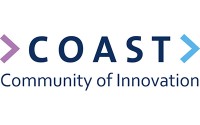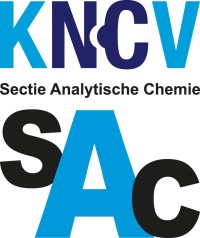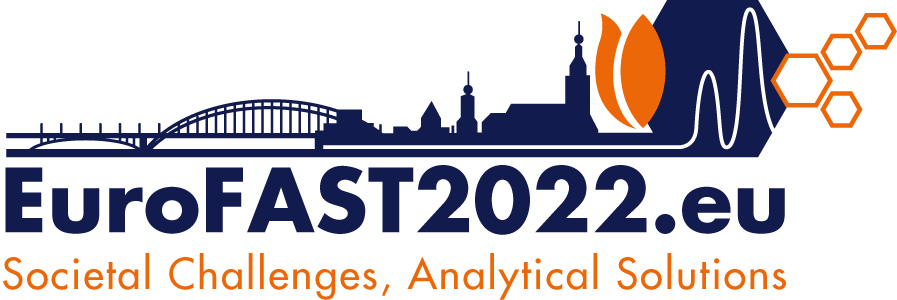Tentative conference programme
|
|
|
|
|||||||||||||||||||||||||||||||||||||||||||||||||||||||||||||||||||||||||||||||||||||||||||||||||||||
|
|
|
|
|||||||||||||||||||||||||||||||||||||||||||||||||||||||||||||||||||||||||||||||||||||||||||||||||||||
Peter Kuipers Munneke |
|
|
"Analytical chemistry is indispensible in understanding past climate, in monitoring current environmental pollution, and in shaping the future of energy, materials, and food." |
|
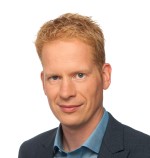 |
Peter Kuipers Munneke (1980) is polar researcher at the Institute for Marine and Atmospheric research Utrecht at Utrecht University. He investigates how the large ice sheets in Greenland and Antarctica respond to global warming. He has (co-)authored more than 50 peer-reviewed papers. He is also tv weatherman at NOS, the largest public broadcast organization of The Netherlands. In recent years, he reported about climate change from the polar regions, presented a podcast on the weather, and toured Dutch theatres together with pianist Ralph van Raat with their music and science programme “Counting Eskimo Words for Snow”. |
Juliane Hollender |
|
| "Analytical chemists can support regulators and industry to address global challenges and improve environmental quality and human health" | |
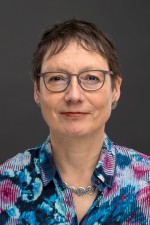 |
Juliane Hollender is head of the department Environmental Chemistry at Eawag as well as adjunct professor at ETH Zurich. After a diploma in chemistry and a PhD in environmental engineering, she worked for 10 years at the RWTH Aachen in Germany before she moved to Switzerland in 2005. Her research concentrates on target, suspect and non-target screening of micropollutants combining high resolution mass spectrometry with chemometrics and the fate of organic micropollutants in the natural and engineered aquatic environment. She has coauthored more than 200 peer-reviewed publications (h-index 66, google scholar) and belonged in 2019 and 2020 to the highly cited scientist in the field of environment and ecology (web of science). She is member of the research council of the Swiss National Science Foundation and part of the steering committee of the network of reference laboratories, research centres and related organisations for monitoring of emerging environmental substances (NORMAN). |
Emmanuel Delamarche |
|
| "It is easy to make complicated devices and concepts, but much harder to find simple and elegant solutions - and this is so true with microfluidics and diagnostic devices!" | |
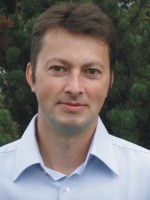 |
Dr. Delamarche is leading activities on Precision Diagnostics at IBM Research - Zurich with the goal of using expertise in micro/nanotechnology and biochemistry for solving important problems in biology and medicine. His main projects deal with the development of portable and precise diagnostic devices and the development of a non-contact scanning microfluidic probe for analyzing biological interfaces. He is also a Lecturer at ETH Zurich and a contributor to scientific panels for governmental agencies and research institutions. He published over 120 papers and is co-inventor on more than 70 patent families. He has received numerous awards from IBM, was named “Master Inventor” by IBM, and received the Werner prize of the Swiss Chemical Society in 2006 and Langmuir Lecture Award in 2020. Dr. Delamarche studied chemistry and received a degree in supramolecular chemistry in 1992 from the University Paul Sabatier of Toulouse in France and his Ph.D. in biochemistry in 1995 from the University of Zurich. |
Jerome Custers |
|
| "Advances in analytical chemistry will be one of the key enablers in vaccine development supporting progress in vaccine characterization, release and quality control" | |
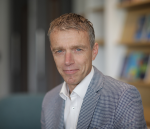 |
Jerome Custers, Ph.D., is Senior Scientific Director Vaccine Research, Viral Vaccines at Janssen, Pharmaceutical Companies of Johnson and Johnson. He joined Janssen in 2011 through the acquisition of Crucell Holland BV, a Dutch Biotech company he joined back in 2002 as a research scientist to work on the development of vaccines against a variety of infectious diseases based on adenoviral vectors. Genetic engineering of viruses has been at the core of the vaccine research performed with the last years expanding into structural vaccinology for antigen design and RNA vaccines for antigen delivery. Jerome co-authored more than 50 peer-reviewed scientific articles and more than 25 patent applications. Jerome was trained as a molecular biologist and prior to joining Crucell he worked for 8 years in the biotechnology industry (Syngenta). He obtained his PhD from the University of Wageningen, The Netherlands in 2007. Jerome’s current responsibilities include vaccine platform development, design of novel vaccine candidates and prototype vaccine development. His team has been instrumental in developing the Adenoviral vector platform technology that has resulted in the successful development of two authorized vaccines (Ebola and COVID-19) and several investigational vaccines in development. His team developed >10 prototype covid-19 vaccines and selected the Janssen Ad26.COV2.S vaccine as lead candidate, now licensed under Emergency Use in several countries across the globe. |
Jos Oomens |
|
| "Integrating mass spectrometry with IR spectroscopy brings us the best of both worlds: sensitivity, selectivity & structure!" | |
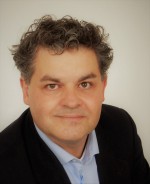 |
Jos Oomens obtained his PhD degree from Radboud University (Nijmegen, NL) in 1996 on a topic in molecular laser spectroscopy. Since 1999, he has been developing methods that integrate mass spectrometry and infrared spectroscopy applying the radiation from the free-electron laser FELIX. IR spectra can now be routinely recorded for mass-selected molecular ions and this is exploited in fundamental molecular sciences as well as in analytical applications. The ability to record an IR spectrum for a single mass peak within complex mixtures provides unique opportunities to assign accurate molecular structures in mass spectrometry workflows, which is applied for instance in metabolomics, environmental sciences and forensics. In 2009, Oomens became Professor by special appointment at the University of Amsterdam (UvA) and in 2011, he received an NWO VICI grant to investigate fundamentals of the dissociation chemistry occurring in MS/MS reactions using ion spectroscopy. In 2013, he was appointed as full professor at Radboud University. He (co-)authored more than 350 peer-reviewed papers (H-index 50), the large majority of which on IR ion spectroscopy and its various applications. |
Aoife Gowen |
|
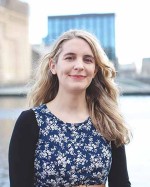 |
Aoife Gowen is a Professor in the School of Biosystems and Food Engineering at University College Dublin in Ireland. Her research area is multidisciplinary, involving applications of Spectral Imaging and chemometrics to biological systems, including foods, microbes and biomaterials. After completing her undergraduate degree in Theoretical Physics in 2000, she moved to the highly applied research area of Food Science. Her PhD thesis, completed in 2006, concerned mathematical modeling of food quality parameters and optimization of food process operations. During her time as a post-doctoral researcher and Marie Curie fellow in Dublin and Japan she investigated the intersection of near infrared spectroscopy, imaging and chemometrics for characterization of biological systems. In 2014 she set up the Spectral Imaging research group in UCD and has expanded her team through EU and nationally funded grants, including European Research Council starting and proof of concept grants. She is editor in chief of the Journal of Spectral Imaging and has developed new research-informed modules in spectral imaging and sensors for undergraduate and graduate students. |
Rudolf Krska |
|
| "Analytical chemistry has become indispensable as an enabling dicipline of science for answering interdisciplinary questions." | |
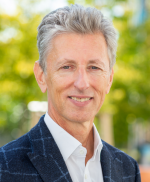 |
Rudolf Krska is full professor for (Bio-)Analytics and Organic Trace Analysis at the University of Natural Resources & Life Sciences, Vienna (BOKU). He is founding head of the Institute of Bioanalytics & Agro-Metabolomics at the BOKU-Department IFA-Tulln. 2010 he worked for one year as A/Chief of Health Canada´s Food Research Division. Krska is also head of strategic research at the Austrian Competence Centre for Feed and Food Quality, Safety and Innovation (FFoQSI). Since 2018, he is affiliated as jointly appointed professor with the Institute for Global Food Security at Queen´s University, Belfast, UK. Rudolf Krska has received 11 scientific awards and is (co‑)author of more than 400 SCI publications (Scopus h‑index: 66; >15.000 citations). Based on the world-wide impact of his papers, the president of the Austrian Society of Analytical Chemistry is ranked Nr. 3 in the area of food safety among more than 100.000 scientists (expertscape.com). |
Romà Tauler |
|
| "Application of data analysis and chemometric methods helps us to improve the understanding of global challenges and of human impacts on the environment and provide efficient tools for environmental risk assessment and management" | |
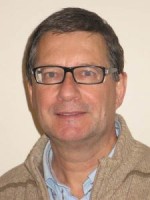 |
Romà Tauler obtained his PhD in Analytical Chemistry at the University of Barcelona in 1984. He has been Associate Professor of the University of Barcelona and at present he is CSIC Research Professor at the Institute of Environmental Assessment and Water Studies (IDAEA, Barcelona). He is chief editor of Journal of Chemometrics and Intelligent Laboratory Systems and chief editor of the Comprehensive Chemometrics, Chemical and Biochemical Data Analysis (Elsevier) Major Reference Work: 1st and 2nd editions. He has been awarded for his achievements in Chemometrics and received different prizes. He has been the President of the Catalan Chemistry Society, and was recipient of the Eu-ERC Advanced Grant award Nr. 320337, 2013-2018, to implement chemometric tools for the omics environmental field. According to Google Scholar (October 2020) RT has published more than 430 research publications with 23982 citations and h-index 76 (h-index 49 since 2015). He has also published more than 60 book chapters. He has supervised 23 PhD Thesis and 3 more are in course. His research interests are in Chemometrics, especially in the development of Multivariate Curve Resolution (MCR) methods, and in their application to Omic Sciences, Environmental Chemistry, Analytical and Bioanalytical Chemistry and Solution Chemistry. |
